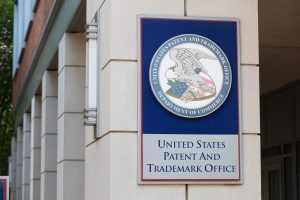Four years after a Supreme Court ruling made a wide array of broad software patents invalid, dealing a death blow to the patent litigation industry, new rules by the US Patent and Trademark Office could change all that.
First spotted by Ars Technica, earlier in January the US Patent and Trademark Office published a draft of new rules which includes more restrictions on what can be excluded from patents. If the rules go into effect, it could usher in an era in which it is easy to get a broad software patent and then sue companies that unwittingly infringe on those patents.
“These guidance documents aim to improve the clarity, consistency, and predictability of actions across the USPTO,” said Under Secretary of Commerce for Intellectual Property and Director of the USPTO Andrei lancu in a press release announcing the proposed changes. “The USPTO will provide training to examiners and administrative patent judges on both documents to ensure that guidance is being properly administered.” The Patent Office’s proposed rules include a list of what should be deemed abstract and what isn’t. For example, math is considered abstract but mathematical isn’t, making it less than clear whether computer operations that improve say compression algorithms are mathematical and thus can be patented.
In 2014 a landmark ruling by the U.S. Supreme Court in the Alice Corp. v. CLS Bank International case limited the patentability of software used for businesses. Following the court’s decision, which was a big blow to patent litigation companies, the U.S. Court of Appeals for the Federal Circuit has faced criticism that it has been working to reduce the impact of the ruling based on its own decisions in cases that came before it. Supporters argue that software that improves the functions of computers should be eligible for a patent, a theory that is backed by governments in Europe but has only now been gaining traction in the U.S.
If the Patent Office’s proposed rules go into effect there are fears that patent trolls will come out of the woodworks, acquiring broad and vague software patents that they can then use to wrest big payments out of the companies and harm the software industry. Ars Technica pointed to one survey back in 2012 that showed software patent litigation costs the economy $29 billion a year. Another report estimated that 60% of the patent troll revenue was from software and tech-related patents, with software a particular area of focus. The U.S. Patent Office is seeking public comment on the rules until March 8.
























